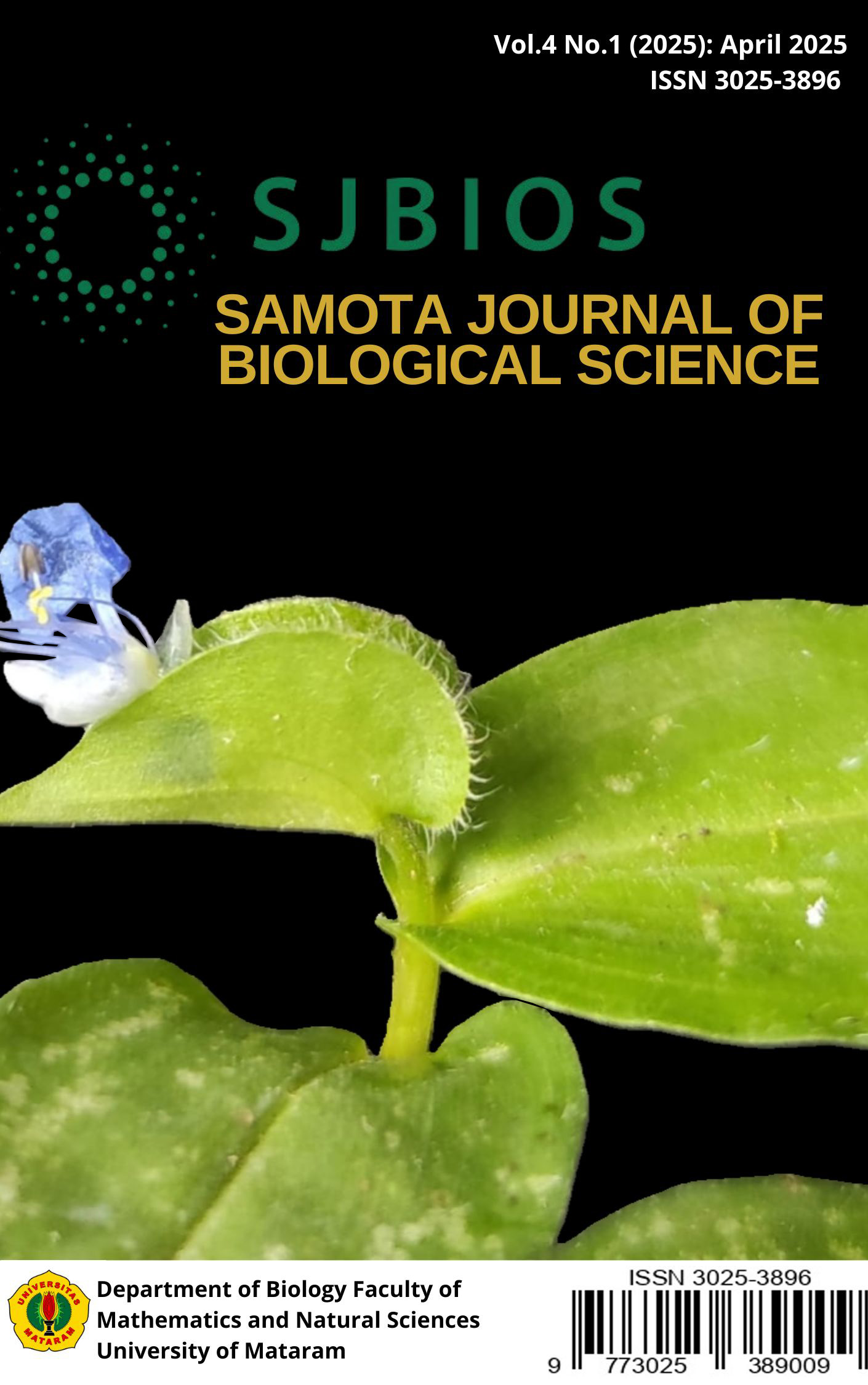PEMANFAATAN LIMBAH RUMAH TANGGA KULIT PISANG, ROTI DAN NASI SEBAGAI MEDIA PERANGKAP MIKROORGANISME LOKAL
DOI:
https://doi.org/10.29303/sjbios.v4i1.6814Keywords:
Limbah Rumah Tangga, Mikroorganisme lokal, Fermentasi, Pupuk organik cairAbstract
Organic waste management is an important step in supporting environmental sustainability and food security. This study aims to utilize household waste such as stale rice, banana peels, and bread as fermentation media to produce Local Microorganisms (MOL) that have the potential to become decomposers, biofertilizers, and organic pesticides. The study was conducted for 9 days at the Faculty of Mathematics and Natural Sciences, University of Mataram, with various media cover treatments (plastic, rice paper, and banana leaves) and natural media. Observations were made every two days by observing physical changes such as texture, color, aroma, and growth of microorganisms. The results showed that the type of media and cover treatment affected the development of microorganism colonies. Media with loose covers tended to have more bacterial growth, while tightly closed media showed fungal dominance. Banana peels produced black to pink mycelium, while bread produced fungal colonies such as Aspergillus sp. and Penicillium sp. Media with stale rice tended to produce a distinctive sour tape odor. In conclusion, household waste can be utilized to produce MOL containing decomposer microorganisms with variations in microbial content according to the media and treatment. This study provides an environmentally friendly solution in managing household organic waste into organic liquid fertilizers that are rich in nutrients.
Downloads
Published
Issue
Section
License
Copyright (c) 2025 Yanti Aprianingsih, Zazhara Aulia Sadjidah, Iin Liani, Ernin Hidayati

This work is licensed under a Creative Commons Attribution-NonCommercial 4.0 International License.




















